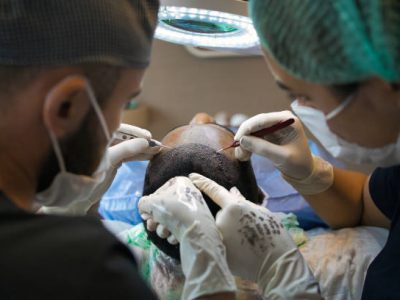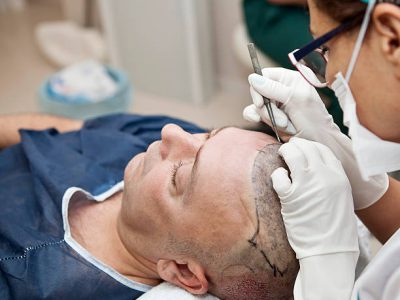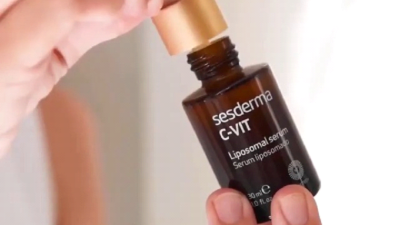Testosterone is a hormone that is created by the testes in men’s and women’s ovaries. It is responsible for the development of male sex characteristics, such as increased muscle mass and bone density and deepening of the voice. Testosterone levels peak during late adolescence and early adulthood and then slowly decline with age. This natural process can lead to a number of symptoms, including decreased energy levels, mood swings, weight gain, loss of libido, and erectile dysfunction. In some cases, these symptoms can be severe enough to impact life.
Testosterone replacement therapy (TRT) is a treatment option that involves supplementing testosterone levels in order to alleviate symptoms associated with low testosterone levels. TRT is available in a variety of forms, including injections, patches, gels, and tablets. While TRT is generally safe and effective when prescribed by a doctor, there are some risks associated with its use. A doctor can let you know if you have to increase testosterone supplements.
Here are ten risks of testosterone replacement therapy:
1. Increased risk of heart attack and stroke
One of the most significant risks of testosterone replacement therapy is an increased risk of heart attack and stroke. This is because testosterone can increase the levels of bad cholesterol (LDL) and decrease the levels of good cholesterol (HDL) in the blood. It can also cause the blood to clot more efficiently, which can lead to a heart attack or stroke.
2. Risk of cancer
Another significant risk associated with testosterone replacement therapy is an increased risk of cancer. This is mainly due to the fact that testosterone can stimulate the growth of certain types of cancer cells.
3. Risk of liver damage
TRT can also pose a risk to the liver, as it can cause the liver to become overloaded with toxins. This can lead to liver damage or even liver failure.
4. Risk of infertility
TRT may also cause infertility in men, as it can reduce sperm count and sperm quality. In some cases, it may even lead to permanent infertility.
5. Risk of adverse effects
TRT can also cause a number of adverse effects, including acne, hair loss, testicular shrinkage, and mood swings.
6. Increased risk for pregnant women and children
TRT should not be used by pregnant women or children, as it can cause serious harm to both mother and child. Testosterone can cross the placenta and enter the baby’s bloodstream, which can cause birth defects or even death. It can also affect the development of the child’s brain and reproductive organs.
7. Risk of dependency
Some men may develop a dependency on testosterone replacement therapy, as they may come to rely on it to feel good emotionally or physically. If you suspect that you are dependent on TRT, talk to your doctor about getting help.
8. Unregulated industry
The testosterone replacement therapy industry is currently unregulated, which means that there is no guarantee of safety or quality when purchasing products from this category. Be sure to research any TRT product before buying it to ensure that you are getting a quality product from a reputable company.
9. Cost
TRT can be pretty expensive, especially if you need to use it long-term. This is because the cost of TRT products, as well as the cost of doctor’s visits, can add up over time.
10. Limited research
There is limited research on the long-term effects of testosterone replacement therapy. This means that TRT’s potential risks and benefits are not fully known. If you are considering TRT, be sure to discuss the risks and benefits with your doctor to make sure that it is right for you.
Testosterone replacement therapy can be an effective treatment option for men with low testosterone levels. However, there are some risks associated with its use. Be sure to discuss the risks and benefits of TRT with your doctor before starting treatment.
Here are ten rewards of testosterone replacement therapy:
1. Increased energy levels and improved mood:
These are testosterone replacement therapy, the most noticeable and immediate therapy (TRT). Low testosterone levels can result in feelings of fatigue and low energy, which TRT can improve. Also, testosterone plays a role in producing and maintaining muscle mass, so TRT can help offset the natural decline in muscle mass that occurs with age.
2. Improved function:
TRT can improve function in men with low testosterone levels. For example, it can increase libido and promote erectile function.
3. Improved bone density:
Low testosterone levels are linked with osteoporosis or the loss of bone density. Conversely, testosterone therapy can help increase bone density, particularly in older men with low testosterone levels.
4. Increased muscle mass:
Testosterone therapy can increase muscle mass and strength. This may be beneficial for athletes or older men who want to improve their physical appearance.
5. Increased energy levels:
Low testosterone levels can cause fatigue and low energy levels. Testosterone therapy can help increase energy levels and improve stamina.
6. improved mental health:
Low testosterone levels are linked with depression, and testosterone therapy can improve mood and alleviate symptoms of depression.
7. Increased sense of well-being:
Testosterone therapy can improve libido and sex drive and increase energy levels and sense of well-being.
8. improved heart health:
Low testosterone levels are linked with an increased risk of heart disease, and testosterone therapy can improve cholesterol levels and reduce the risk of heart disease.
9. reduced risk of diabetes:
Low testosterone levels are linked with an increased risk of type 2 diabetes, and testosterone therapy can reduce the risk of developing diabetes.
10. improved brain function:
Low testosterone levels are linked with memory problems and decreased brain function. Conversely, testosterone therapy can improve brain function and memory.
Testosterone therapy comes with a number of potential benefits, including improved bone density, increased muscle mass and strength, increased energy levels, improved mental health, increased sense of well-being, improved heart health, reduced risk of diabetes, and improved brain function. While testosterone therapy’s risks and side effects must be considered before starting treatment, testosterone replacement therapy can be a safe and effective way to improve many men’s overall quality of life.












